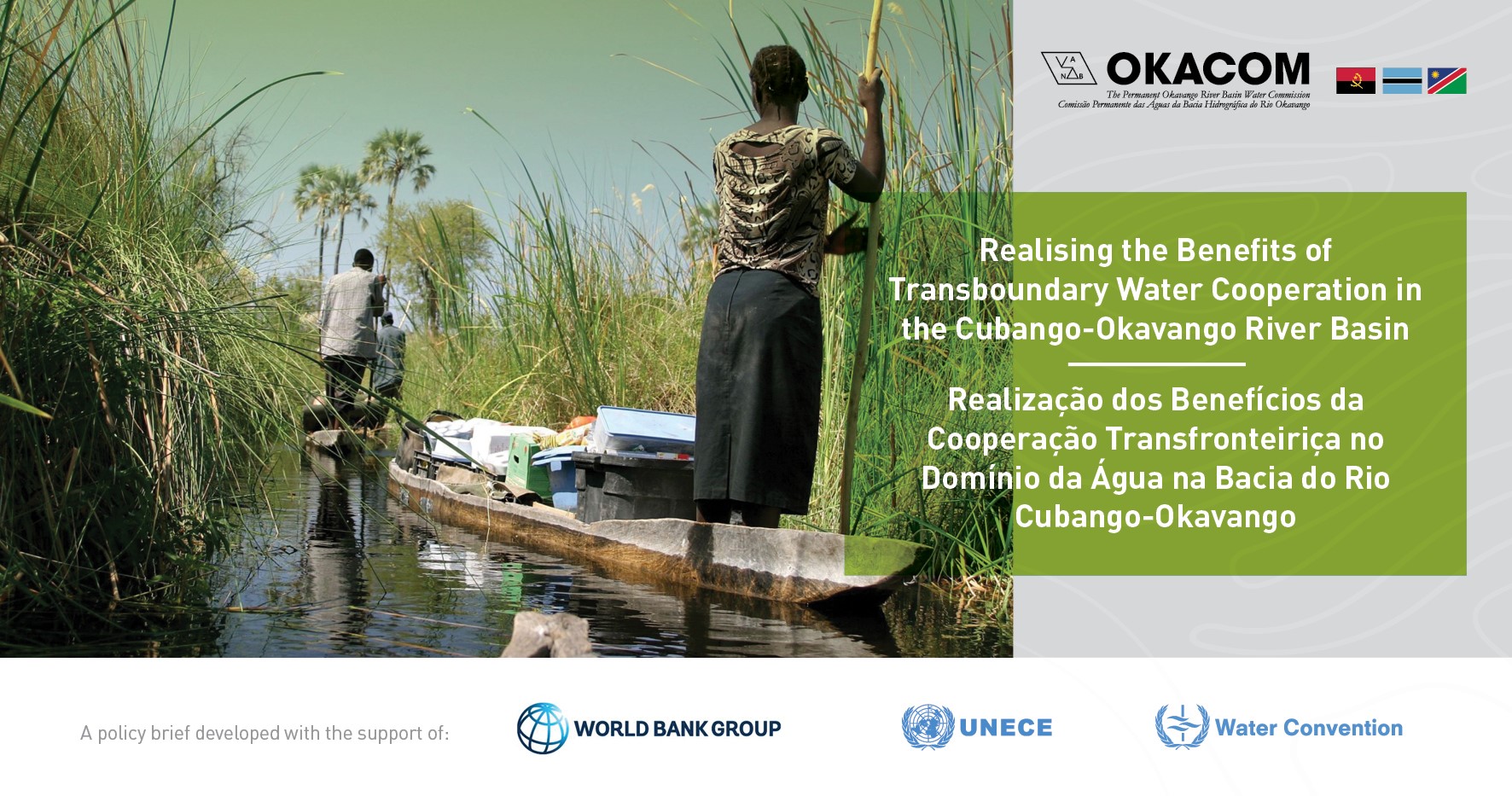- Home
- About Us
- Background
- Mandate
- Cubango Okavango River Basin
- Governance
- Strategy and Approach
- Member States
- Our Work
- Partners
- Climate Resilient Infrastructure Development Facility (CRIDF)
- European Union (EU)
- Southern African Development Community (SADC)
- Swedish International Development Cooperation Agency (SIDA)
- The World Bank (WB)
- United Nations Development Programme (UNDP)
- United States Agency For International Development (USAID)
- Resources
- News and Events
- Opportunities
- Contact Us
- FAQ's
- Connect With Us
- i
- t
- f

Policy Brief on Realising the Benefits of Transboundary Water Cooperation Published
Thursday, October 29, 2020

As part of evaluating the strengths and benefits of over 25 years of cooperation by the three Member States of Angola, Botswana and Namibia within the Cubango-Okavango River Basin (CORB), OKACOM initiated a process of assessing the key strengths, benefits and threats. The process built upon the model developed under the Water Convention for assessing the benefits of transboundary cooperation in shared Basin and was a participative process that included national and Basin consultations. This was done with support and in partnership with the United Nations Economic Commission for Europe (UNECE), the Climate Resilient Infrastructure Development Facility (CRIDF) and the World Bank and was completed in 2019. The output of this process was a detailed policy report titled Realising the Benefits of Transboundary Water Cooperation in the Cubango-Okavango River Basin, developed from source material produced under the World Bank led study Multi-Sector Investment Opportunities Analysis (MSIOA) of the Cubango-Okavango River Basin and the Water Convention’s publication titled Identifying, Assessing and Communicating the Benefits of Transboundary Water Cooperation: Lessons Learnt and Recommendations. The document has been endorsed by OKACOM Commissioners and the Okavango Basin Steering Committee (OBSC) and has been published in both English and Portuguese.
In order to communicate widely about the conclusions and recommendations outlined in the Policy Brief, a webinar was organised and hosted by OKACOM on 28 October 2020, with a panel comprising of representatives from UNECE, World Bank and National Geographic Okavango Wilderness Project. The webinar was aimed at providing a platform to promote awareness on the main outcomes and lessons learned in the benefits assessment, to inform decision making and further planning for the management of the CORB across the three Member States and beyond the Basin. OKACOM OBSC Co-Chair for Botswana Dr Kobamelo Dikgola offered insight into the backdrop of benefits sharing and development planning at national and regional scale, across Member States. Dr Steve Boyes from the Wild Bird Trust National Geographic Okavango Wilderness Project’s put into context the current socio-economic status of Basin populations across the three countries and an overview of the rich biodiversity and natural resources of the Basin. The next steps will be to further disseminate the document and ensure access to all stakeholders and emerging partners.
Thematic Areas & Activities
News
subscribe for news notification by email
Photo Credit: Kostatin Luchansky, National Geographic, Okavango Wilderness Project.
© [current-date:custom:Y] [site:name]

